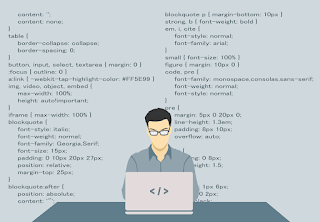What Is a Software Engineer?
Software engineers create operating systems, applications, and programs. Explore this career, including education requirements, key skills, and salary potential.
History of Software Engineers
What Does a Software Engineer Do?
Computer software engineers develop programs and operating systems for computers. They work with system programmers, analysts, and other engineers to design systems, project capabilities, and determine performance interfaces.
Computer software engineers also analyze user needs, provide consultation services to discuss design elements, and coordinate software installation. Designing software systems requires engineers to consider mathematical models and scientific analysis to project outcomes.
The demand for skilled computer software engineers continues to grow. The Bureau of Labor Statistics (BLS) projects that software developer, analyst, and tester jobs will increase by 25% between 2021 and 2031, five times faster than the national average.
Computer software engineers can find employment in almost any industry since most companies use software. In fact, the BLS projects over 682,000 new computer and information technology jobs. As companies have more complex software needs, they need software engineers to create new programming applications and tools.
Key Soft Skills for Software Engineers
Key Hard Skills for Software Engineers
Features and functionality. This improves performances and fixes defects. They must also know the software development lifecycle to plan, test, and deploy systems.
Plus-circle icon Programming Languages: Software engineers write code for computer programs and applications. Some popular languages include Python, C++, and Java.
Plus-circle icon Core Computer Science Knowledge: Software engineers need a strong understanding of computer science concepts like databases, operating systems, and computer networking. Professionals use database management systems like SQL and must know various operating systems, including Linux.
A few of the most popular programming languages software engineers need to know include:
Java: This programming language produces software on multiple platforms without the need for recompilation. The code runs on nearly all operating systems including Mac OS or Windows. Java uses syntax from C and C++ programming. Browser-operated programs facilitate GUI and object interaction from users.
JavaScript: This scripting programming language allows users to perform complex tasks. Most web pages are written in Javascript. This language allows users to update content, animate images, operate multimedia, and store variables. JavaScript represents one of the web’s three major technologies.
SQL: Also known as Structured Query Language, SQL queries, updates, modifies, deletes, and inserts data. To achieve this, SQL uses a set number of commands. This computer language is standard for data manipulation and relational database management. Professionals use SQL to manage structured data where relationships between variables and entities exist.
C++: Regarded as an object-oriented, general purpose programming language, C++ uses both low and high-level language. Since virtually all computers contain C++, software engineers must understand this language. C++ encompasses most C programs without switching the source code line. C++ primarily manipulates text, numbers, and other computer-capable tasks.
C#: Initially developed for Microsoft, this highly expressive program language is simpler than other languages, yet it includes components of C++ and Java. Generic types and methods provide additional safety and increased performance. C# also allows professionals to define iteration behavior while supporting encapsulation, polymorphism, and inheritance.
Python: This high-level programming language contains dynamic semantics, structures, typing, and binding that connect existing components; however, the Python syntax is easy to learn with no compilation stage involved, reducing program maintenance and enhancing productivity. Python also supports module and package use, which allows engineers to use the language for varying projects.
A Day in the Life of a Software Engineer
Software Engineer Career and Salary OutlookSalaries for software engineers can vary based on the industry, location, and the employee’s years of experience. Payscale reports an average salary of $89,160 for software engineers as of September 2022. With experience, software engineer salaries can grow rapidly, with the average rising to $94,000 for those with 5-9 years of experience.
While the BLS does not distinguish between software engineers and developers, reports for these occupations highlight particularly lucrative industries and states in the field. Software developers earn a median annual wage of $109,020.
California ranks highest in the nation for software developer salaries, with an annual average salary of $146,770. Washington is next on the list, with an average salary of $145,150. Maryland ranks third, followed closely by New York and Rhode Island.




